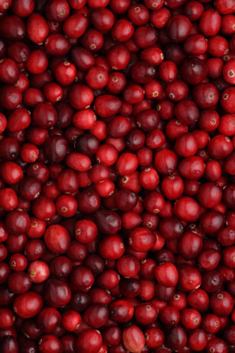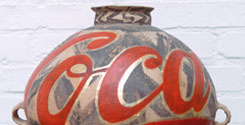
There is compelling experimental evidence suggesting cranberries benefit heart health, say Tufts researchers. Photo: Paul Tessier/iStock
A Different Cocktail for the Heart
Research shows that cranberries might help stave off cardiovascular disease
We’ve heard about how red wine is good for heart health, but could it be that a splash of cranberry juice is helpful, too?
A survey of recent research literature by two Tufts scientists found that cranberries have properties that could be important in helping alleviate cardiovascular disease, the leading cause of death in America according to the American Heart Association. “There is a compelling body of experimental evidence suggesting a benefit of cranberry phytochemicals on heart health,” says Jeffrey Blumberg, a senior scientist in the Antioxidant Research Laboratory at the Jean Mayer USDA Human Nutrition Research Center on Aging. Phytochemicals are chemicals derived from plant sources. “The available human studies in this area are limited, but show some evidence of promise,” Blumberg notes.
Studies have shown that when people eat lots of fruits and vegetables, they lower their risk of developing cardiovascular disease and stroke. The phytochemicals in the foods “appear to contribute substantially to this benefit,” write Blumberg and co-author Diane McKay, a scientist in the Antioxidant Lab, in Nutrition Reviews.
Cranberry phytochemicals, particularly a subset called flavonoids, have been shown to help prevent urinary tract infections and gastric ulcers, as well as decrease gum disease. Researchers now think the same mechanism confers cardiovascular benefits, and are focusing more studies on this area.
In one of the studies, a group of people who drank low-calorie cranberry juice significantly reduced their LDL cholesterol, the “bad” type, compared to controls. Another study found that after 12 weeks of consuming increasing amounts of cranberry juice, a group of 14 men had increased concentrations of HDL, the good cholesterol. The studies were small, though, and more testing is needed, Blumberg says.
Cranberry juice cocktail, with 27 percent juice, is the most common way to consume cranberries, and was used in most of the clinical trials. Cranberry juice cocktail is quite tart, of course, and requires sweetening to be palatable for most people; for those counting calories, Blumberg says, the light cranberry juice cocktails with sugar substitutes are a good alternative.
Blumberg’s lab is awaiting approvals to begin a study investigating the effects of cranberries on cardiovascular disease, particularly how its nutrients are absorbed from the gastrointestinal tract into the blood and what exactly they do in the body. The research project, he says, is supported in part by funding from Ocean Spray.


